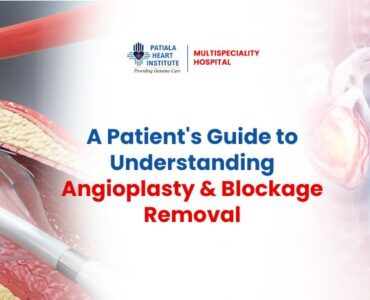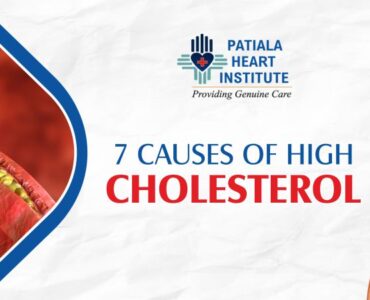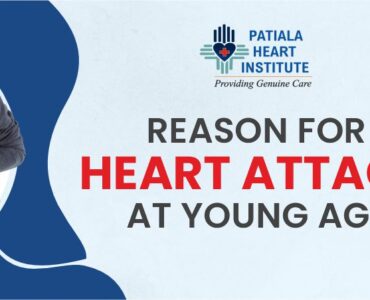Of the estimated 220 million people in India living with hypertension, only 12% have their blood pressure under control – says WHO.
Hypertension, or High Blood Pressure, is not something that can be taken lightly. It is a serious problem and can become dangerous if not treated timely. It can put you at risk of developing other health issues, including; stroke, heart failure, and kidney failure.
Taking the time to read through this entire blog will help you better understand hypertension and how to manage it.
What is High Blood Pressure?
Blood pressure is a measurement of the pressure or force of the blood pushing against the blood vessel walls. When you are suffering from hypertension, the pressure of blood pushing against the blood vessel walls is consistently too high. In the long run, high blood pressure causes continuous damage to your body, even though you may not realize it.
What do Blood Pressure Numbers Mean?
You can measure blood pressure with the help of two numbers. The top number is called systolic blood pressure, which measures the pressure in your arteries when your heart beats. The bottom number is called diastolic blood pressure, which measures the pressure in your arteries when your heart rests between beats. Blood pressure is generally measured in millimeters of mercury (mmHg).
If your measurement comes out to be 120 systolic and 80 diastolic, you can say 120/80 mm Hg.
Generally, hypertension is a blood pressure reading of 130/80 mm Hg or higher. You tend to have normal blood pressure if you have 120/80 mm Hg or lower readings.
Stage 1 Hypertension:
The top number ranges from 130 to 139 mm Hg, and the bottom number is between 80 and 89 mm Hg.
Stage 2 Hypertension:
The top number is 140 mm Hg or higher, or the bottom number is 90 mm Hg or higher.
If in case the blood pressure goes higher than 180/ 120 mm Hg, this condition is considered a hypertensive emergency or crisis. You should seek urgent medical help. It is because untreated blood pressure increases the risk of heart attack or other severe health issues.
Every adult over the age of 18 should have a blood pressure check-up every two years, beginning at the age of 18. Some people might need more frequent check-ups.
Types of High Blood Pressure and Their Causes
After examining, your healthcare provider might diagnose you with any one of these two types:
Primary High Blood Pressure
This type of high blood pressure is most common, and it is usually caused due to either an unhealthy lifestyle like not doing enough exercise, obesity, diabetes or aging.
Secondary High Blood Pressure
This is the second type of high blood pressure, and it is caused due to some medical problems such as kidney or hormonal problems, or sometimes regular medications can be the reason. Some of the conditions and medications that cause secondary high blood pressure are:
- Adrenal gland tumors
- Blood vessel problems present at birth also called congenital heart defects
- Cough and cold medicines, some pain relievers, birth control pills, and other prescription drugs
- Intoxicating drugs, such as cocaine and amphetamines
- Kidney disease
- Obstructive sleep apnea
- Thyroid problems
Who is at the Higher Risk For High Blood Pressure?
High blood pressure is commonly prevalent in recent times. A few risk factors, however, can put you at greater risk of high blood pressure. The following risk factors are:
- Age
- Obesity
- Family history
- High-salt diets
- Alcohol abuse
- Some medications, nonsteroidal anti-inflammatories, also known as NSAIDs, some decongestants, weight loss medicines, and stimulants
- Inactivity
- Tobacco and illicit drug use
Symptoms of High Blood Pressure
Most people with high blood pressure do not have any symptoms, even if their blood pressure increases to a dangerous level. Also, you may have high blood pressure for years and remain unaware of your condition. But a few people with high blood pressure may experience the following:
- Moderate or Severe Headaches
- Nose Bleeding
- Blurry or Double Vision
- Fatigue
- Nausea/ Vomiting
- Lightheadedness/ fainting
- Palpitations
- Anxiety
- Feeling Pulsations in the Neck
- Shortness of Breath
However, these symptoms are not specific; your doctor can only tell you whether you have high blood pressure by taking a blood pressure reading.
What Can Happen If Hypertension is Not Treated Correctly?
High blood pressure can be really serious if you are careless and can cause serious damage to your body. It may lead to the following health problems:
- Stroke
- Heart attack
- Peripheral vascular disease
- Kidney disease/failure
- Complications during pregnancy
- Eye damage
- Vascular dementia
Treatment of High Blood Pressure
The first line of treatment for treating hypertension is lifestyle changes. Other than that, there are a few medications that can treat it. Some recommendations are as follows:
Regular Physical Activity
Every person, including the ones with high blood pressure, must do moderate exercise for 150 minutes a week. People can exercise for five days a week to remain healthy.
Suitable activities can be:
- Jogging
- Aerobics
- Walking
- Swimming
- Cycling
Reduce Stress
Avoiding and controlling stress can help you treat your high blood pressure. A few of the relaxation activities include:
- Yoga
- Meditation
- Warm Baths
- Going on Long Walks
Medications
Doctors recommend certain medications Some people use specific medicines to treat their high blood pressure. Medicines usually recommended for hypertension are:
- diuretics, including thiazides, chlorthalidone, and indapamide
- beta-blockers and alpha-blockers
- calcium-channel blockers
- central agonists
- peripheral adrenergic inhibitor
- vasodilators
- angiotensin-converting enzyme (ACE) inhibitors
- angiotensin receptor blockers
Final Thoughts
We hope this information has helped you and clarified your doubts about hypertension. If you think you have high BP, visit the best doctor available at the Patiala Heart Institute. We provide the best treatment and care to our patients.
What should we do when BP is high?
If your blood pressure is high, you should take a warm bath or shower, stay in there for at least 15 minutes and enjoy the warm water. Also, you can do the breathing exercises by taking a deep breath from your core, holding it there for 2 seconds, and exhaling slowly.
Can drinking lots of water lower blood pressure?
Keeping yourself hydrated by drinking 6 to 8 glasses of water can help you keep your blood pressure under control. Water makes up 73% of a human’s heart, so no other liquid is better than water.
Does coffee raise blood pressure?
Consuming more than 4 cups a day can raise your blood pressure. You must reduce your consumption if you are a hardcore fan of coffee, tea, or other caffeinated drinks like cola or other energy drinks.







